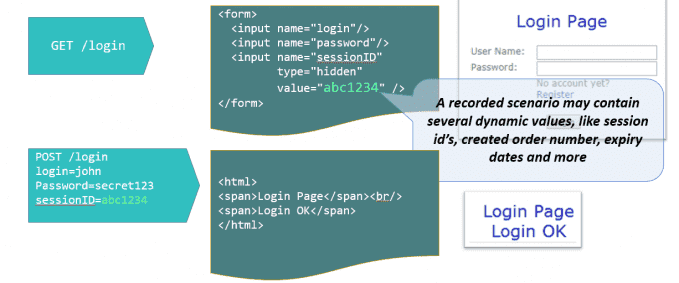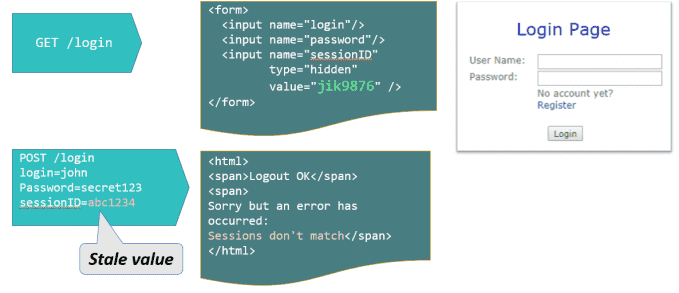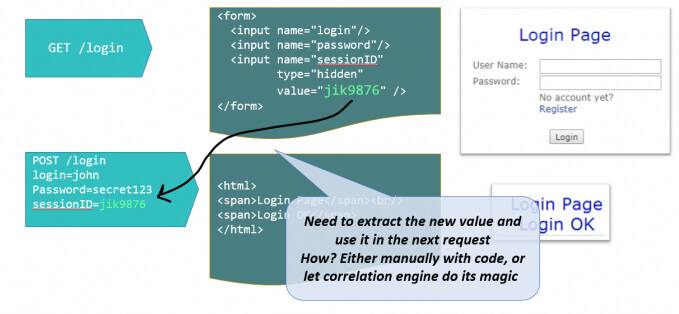Why Correlation Matters
Correlation is critical to the accuracy of your load testing. The need for correlation stems from the very fact that we typically use a single user scenario to record a script, then run the same script hundreds or thousands of times to artificially simulate the load we need to test for, learn how WebLOAD correlation engine can really make the difference.
To accurately simulate real user load, however, some of the values need to be adjusted to reflect session variables, such as session ID, time stamps, and more. Without the ability to dynamically adjust these values to each simulated user session, the server will return errors and inaccurately reflect real-life performance.
That’s why correlation is so critical: by replacing the static values in the recorded script with dynamic session values, it allows a single load test to accurately simulate multiple real users without generating server errors.
WebLOAD Correlation Engine
WebLOAD’s correlation engine is considered industry-best. It correctly recognizes both server-side (such as session id, order number) and client-side (Such as time and date stamp) dynamic values and automatically replaces them to ensure test accuracy while saving days of development for every script.
While other load testing tools may generate over 1000 lines of script code with correlation parameters that require lengthy manual adjustments, WebLOAD automatically identifies a wide number of dynamic values (within URLs, headers, cookies, etc.) – generating highly-accurate and compact output that can be further fine-tuned in just minutes for a perfect script.
How Correlation Works in Practice?
A dynamic value is received in the first GET request – Value abc1234, and used dynamically the same value in the next POST request – Value abc1234

Execution without Correlation
A dynamic value is received in the first GET request – Value jik9876, but instead of using the same value, in the post request, it used the original recorded value in the next POST request – Value abc1234. Error script.

Execution with correlation
A dynamic value is received in the first GET request – Value jik9876, WebLOAD’s advanced correlation takes the value it received in the GET request and uses it in next POST request – Value jik9876.

Coupled with WebLOAD’s Parametrization and Response Validation, correlation is the key to accurate and reliable load test results.
